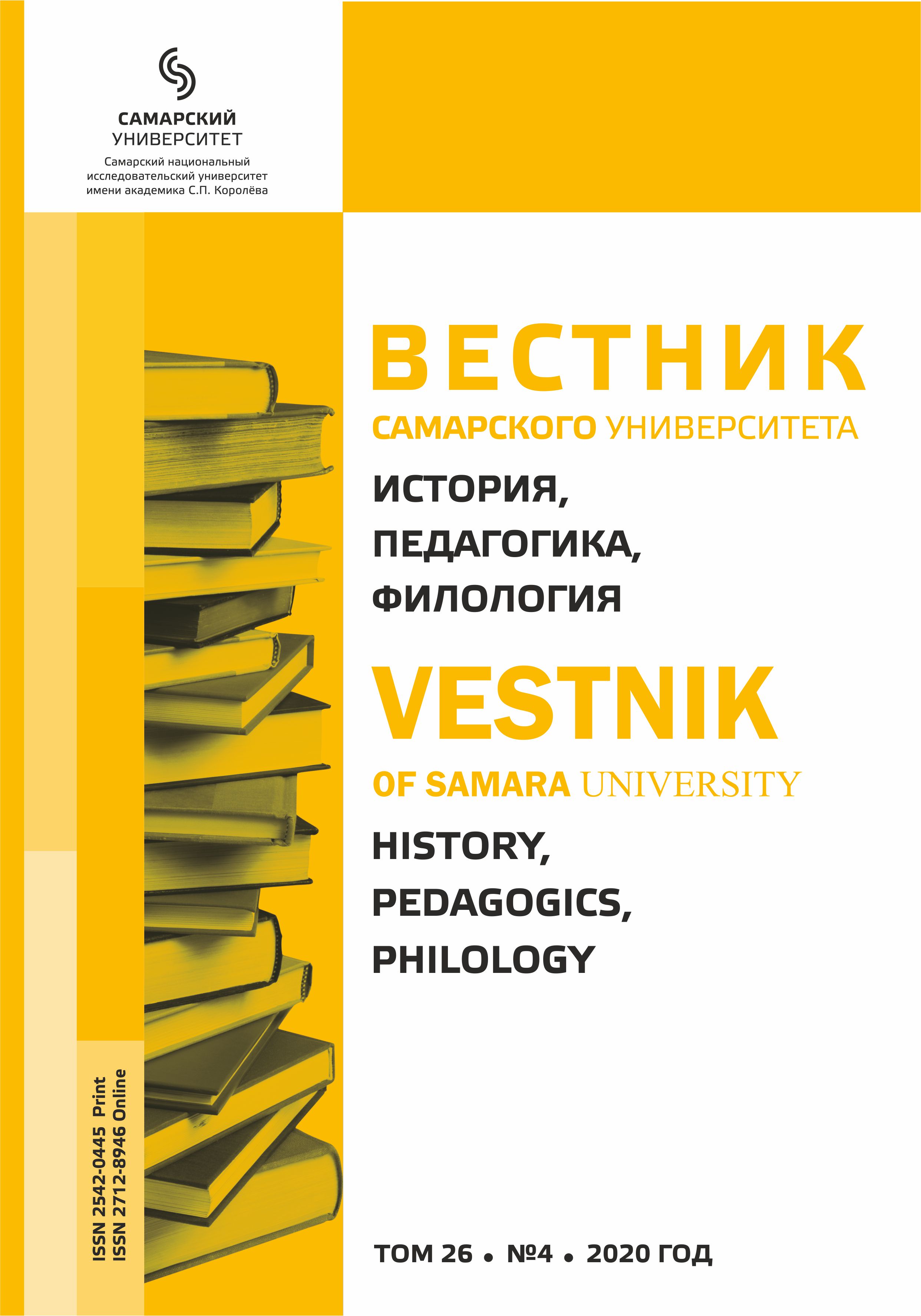Using Simulations in Teaching Research Academic Writing Course
- Authors: Luganskaya Y.V.1
-
Affiliations:
- Baikal International Business School, Irkutsk State University
- Issue: Vol 26, No 4 (2020)
- Pages: 68-75
- Section: Articles
- URL: https://journals.ssau.ru/hpp/article/view/8255
- DOI: https://doi.org/10.18287/2542-0445-2020-26-4-68-75
- ID: 8255
Cite item
Full Text
Abstract
The article focuses on teaching research academic writing to undergraduates taking a Russian-American dual-degree program offered by Baikal International Business School and its partner University of Maryland Global Campus. As the American program is online, writing courses are mandatory. Being the final course in the writing module, research academic writing is challenging not only for students but also for the instructor. This makes the teacher look for new ways to improve the quality of teaching and to motivate undergraduates. The paper describes action research aiming at introducing simulation games in research academic writing course to engage students in classroom activities, vary practical assignments, and make classes more interactive. Using observation, student questionnaires and interviews, the author compares her class atmosphere and student involvement before and after the intervention. As a result of her research, the author comes to the conclusion that simulation activities, besides other advantages, can be successfully used for teaching academic writing since they increase motivation and student engagement creating a positive learning environment. Moreover, pair or group work can minimize difficulties, which helps to better understand the material. Furthermore, simulation activities have a practical value enabling students to develop skills and competences vital for future managers. Also the paper offers simulation activities developed for the course which are given in the appendices
About the authors
Ye. V. Luganskaya
Baikal International Business School, Irkutsk State University
Author for correspondence.
Email: lug-evgenia@mail.ru
ORCID iD: 0000-0003-1218-2457
Candidate of Philological Sciences, Master of Management, associate professor, Humanities and Foreign Languages Department, Siberian-American School of Management
Russian Federation, 1, Karl Marx Street, Irkutsk, 664003, Russian FederationReferences
- Adams 1973 – Adams D.M. (1973) Simulation games: an approach to learning. Ohio: Charles A. Jones, 120 p. Available at: https://archive.org/details/simulationgamesa0000adam.
- Balasubramanian, Wilson 2005 – Balasubramanian N. and Wilson B.G. (2005) Games and simulations. Available at: https://www.researchgate.net/profile/Brent_Wilson3/publication/228979011_Games_and_simulations/links/0c96051703f63958ea000000/Games-and-simulations.pdf?origin=publication_detail.
- Barry, Trapp 2013 – Barry B. and Trapp G. (2013) Assessing with role play and simulation. Available at: https://teaching.unsw.edu.au/assessing-role-play-and-simulation.
- Burns 2010 – Burns A. (2010) Doing action research in English language teaching: a guide for practitioners. New York and London: Routledge, 196 p. DOI: http://doi.org/10.4324/9780203863466.
- Crow 2008 – Crow M. (2008) Simulation games and role play. Available at: https://ru.scribd.com/document/140081847/Simulations-Games-and-Role-Play.
- DeBord 1989 – DeBord K. (1989) Creative teaching: simulations, games, and role playing. Journal of Extension, vol. 27, no. 2. Available at: http://www.joe.org/joe/1989summer/tt1.php.
- Ellington, Gordon, Fowlie 2013 – Ellington H., Gordon M. and Fowlie J. (2013) Using Games and Simulations in the Classroom: a practical guide for teachers. London, England: Routledge, 224 p. DOI: http://doi.org/10.4324/9780203770955.
- Harry 1969 – Harry L. (1969) Using simulation games in the classroom. Report Number 44. Available at: http://files.eric.ed.gov/fulltext/ED031767.pdf.
- Honey, Hilton 2011 – Honey M. and Hilton M.L. (Eds.) (2011). Learning science through computer games and simulations. Washington, DC: The National Academies Press, 174 p. Available at: https://b-ok.global/book/873267/577ead.
- Hyland 2013 – Hyland K. (2013) Writing in the university: education, knowledge and reputation. Language Teaching, no. 46 (1), pp. 53–70. DOI: http://doi.org/10.1017/S0261444811000036.
- Javid 2013 – Javid C.Z. (2013) An investigation of effectiveness of simulation in developing oral skills: a case study. European Scientific Journal, no. 9 (32). Available at: http://eujournal.org/index.php/esj/article/viewFile/2027/1939.
- Jones 1982 – Jones K. (1982) Simulations in language teaching. Cambridge, England: Cambridge University Press, 122 p. DOI: http://doi.org/10.2307/327885.
- Ke 2008 – Ke F. (2008) Computer games application within alternative classroom goal structures: cognitive, metacognitive, and affective evaluation. Educational Technology Research and Development, no. 56 (5/6), pp. 539–556. DOI: https://doi.org/10.1007/s11423-008-9086-5.
- Livingstone 1983 – Livingstone C. (1983) Role-play in language learning. Harlow: Longman, 94 p. Available at: https://perlinguam.journals.ac.za/pub/article/download/508/545.
- Ranalli 2008 – Ranalli J. (2008) Learning English with the sims: exploiting authentic computer simulation games for L2 learning. Computer Assisted Language Learning, no. 21 (5), pp. 441–455. Available at: https://lib.dr.iastate.edu/cgi/viewcontent.cgi?article=1080&context=engl_pubs.
- Rieber 2005 – Rieber L. (2005) Multimedia learning in games, simulations, and microworlds. In: Mayer R.E. (Ed.) The Cambridge handbook of multimedia learning. New York: Cambridge University Press, pp. 549–567. Available at: http://lrieber.coe.uga.edu/mayer2005/.
- Ruben 1999 – Ruben B.D. (1999) Simulations, games, and experience-based learning: the quest for a new paradigm for teaching and learning. Simulation Gaming, no. 30 (4), pp. 498–505. DOI: http://doi.org/10.1177/104687819903000409.
- Russell, Shepherd 2010 – Russell C. and Shepherd J. (2010) Online role-play environments for higher education. British Journal of Educational Technology, vol. 41, no. 6, pp. 992–1002. DOI: http://doi.org/10.1111/j.1467-8535.2009.01048.x.
- Sutcliffe 2002 – Sutcliffe M. (2002) Simulations, games and role-play. In: Davies P. (Ed.) The handbook for economics lecturers. Available at: https://www.economicsnetwork.ac.uk/handbook/printable/games_v5.pdf.
- Tompkins 1998 – Tompkins P.K. (1998) Role playing/simulation. The Internet TESL Journal, no. 4 (8). Available at: http://iteslj.org/Techniques/Tompkins-RolePlaying.html.
Supplementary files













